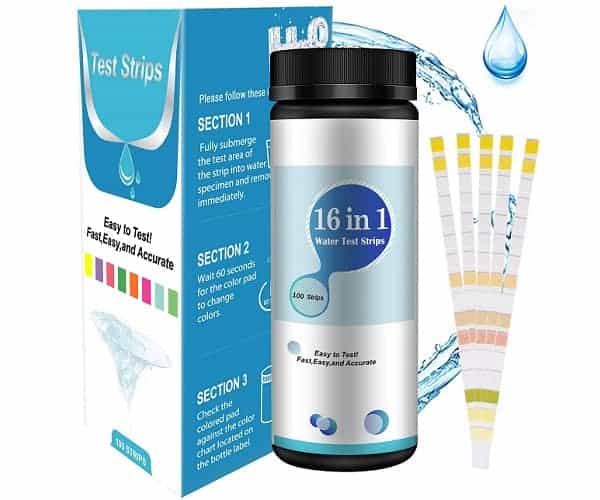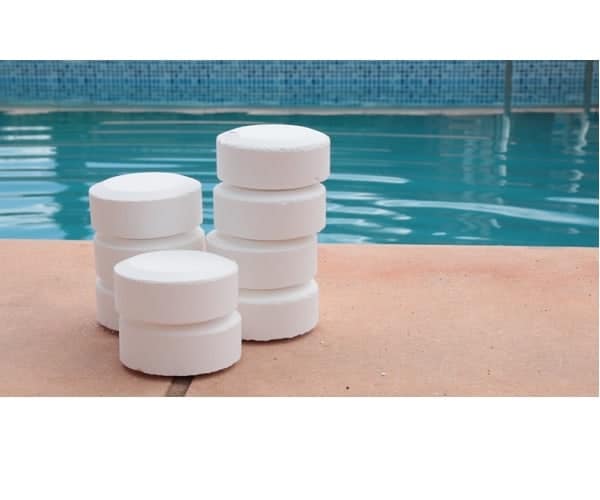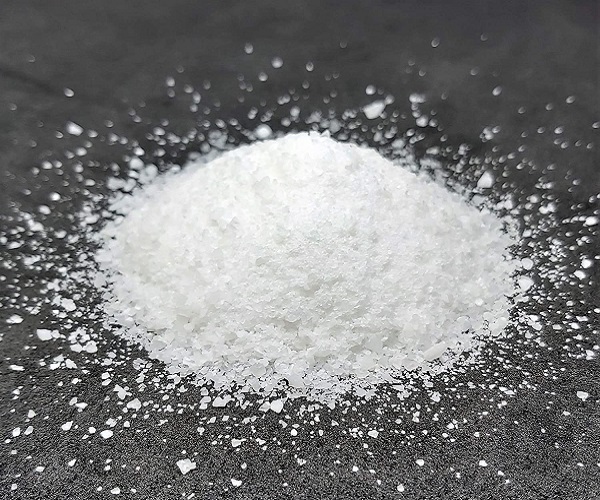
Table of contents of the page
En Ok Pool Reform within Pool chemicals We want to give you information and details about: What does aluminum sulfate do in swimming pools?
What is aluminum sulfate used for in swimming pools?

Aluminum sulfate is a chemical compound used in swimming pools to help reduce the alkalinity and pH of the water.
It is added to water to make the pH level more acidic, which helps prevent the growth of algae and other bacteria. Additionally, aluminum sulfate can also be used to clarify pool water as it binds to small particles that can cause discoloration. This helps keep the water looking clear and clean. Aluminum sulfate is a common and effective tool for keeping pools healthy and safe for swimmers.
The benefits of adding aluminum sulfate to your pool

Adding aluminum sulfate to your pool can have several benefits.
- On the one hand, it can help clarify the water and make it more transparent since it is an effective flocculant, which means that it binds water particles, making it easier to filter. This helps keep the pool clean, clear and safe for swimming. This is because aluminum sulfate can bind to small particles of dirt and debris, causing them to clump together and fall to the bottom of the pool. As a result, the water will look cleaner and less cloudy.
- Additionally, aluminum sulfate can help reduce the amount of growth algae in the pool. Algae thrive in warm, sunny climates, and can quickly turn a pool into an ugly green mess. By adding aluminum sulfate to your pool, you can reduce the amount of algae present and keep your swimming area looking its best.
- Likewise, balances calcium hardness and prevents lime buildup.
- This chemical also helps eliminate excessive chlorine levels y cloudy water.
- Lastly, aluminum sulfate can also help reduce alkalinity and stabilize the pH level of the water. A balanced pH level is essential to keeping your pool clean and safe for swimming. If the pH level is too high or too low, it can cause corrosion of metals and lead to other pool problems. By adding aluminum sulfate, you can help maintain a healthy pH level and keep your pool in good condition.
How to Add Aluminum Sulfate to Your Pool
When it comes to adding chemicals to your pool, it is important to be careful and only use the recommended dosage.
Too much of a chemical can not only be harmful to your health, but it can also damage your pool equipment.
For example, adding aluminum sulfate to your pool can help clarify the water and remove any unwanted debris.
However, if you add too much aluminum sulfate, it can cause your pool's pH level to be too high, which can damage the plaster and liner.
Therefore, it is important to know the dosage recommendations and add only the recommended amount of aluminum sulfate to your pool (if possible, always put the product in the skimmer basket). By following these guidelines, you can help keep your pool healthy and looking good.
Dosage of aluminum sulfate for swimming pools
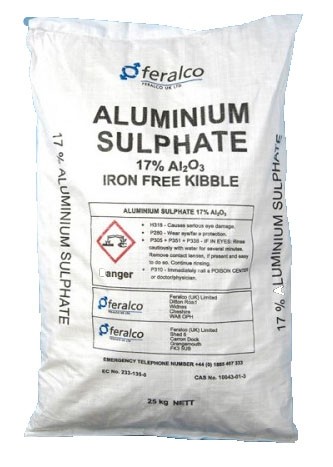
Amount of aluminum sulfate for swimming pools
The small amount of aluminum sulfate necessary for pool disinfection must be well dissolved in the water before pouring it into it. Given the large size of pools with hundreds of m3 of water, it is important to pour the dissolved aluminum sulfate along all contours of the pool to ensure uniform distribution throughout the entire mass of water and maximize its effectiveness.
The recommended dose is 10 grams per m3, so a large pool may require up to several kilograms.
By taking care to follow the proper dilution procedure, you can get the most out of your aluminum sulfate investment and keep your pool clean, safe, and bacteria-free.
Additionally, it is important to note that aluminum sulfate is a powerful chemical and should always be handled with care. It is best to wear gloves and safety glasses as an extra precaution when handling it to avoid any potential risk of skin or eye irritation. Additionally, thoroughly rinse any tools or equipment used to apply aluminum sulfate to prevent corrosion. Once you have correctly applied the aluminum sulfate solution and let it work its magic, you will be able to enjoy your pool again in no time.
By following these simple steps, you can ensure that your pool remains clean and safe for everyone to enjoy. Be sure to use the appropriate dosage of aluminum sulfate based on the size of your pool and pay attention to the dilution process so that it is evenly distributed throughout the entire body of water.
Buy granulated aluminum sulfate for swimming pools
Granulated aluminum sulphate price for swimming pool
Excess aluminum sulfate in swimming pool

Excess aluminum sulfate in pool water can be very dangerous, as it can cause skin and eye irritation and even respiratory problems if inhaled.
In extreme cases, excess aluminum sulfate can be toxic or even fatal.
It is essential to maintain the proper balance of chemicals in your pool to avoid any potential problems with excessive levels of aluminum sulfate. When checking for excess aluminum sulfate, it is important to note that the maximum allowable level is 0,20 ppm (parts per million). Any level above this should prompt immediate action to reduce the level within acceptable limits.
It is also a good idea to check the pH balance when checking for excessive aluminum sulfate levels in a pool. If the pH balance is too low, it can cause excess aluminum sulfate to become more concentrated in the water. To prevent this, use a pool testing kit to check and adjust the pH balance as necessary.
If excess aluminum sulfate is detected, it must be resolved immediately. The best way to do this is to add an algaecide to the pool water, which will help reduce excessive levels of aluminum sulfate. It is important to note that adding any chemical directly to a pool should always be done with caution and in accordance with the manufacturer's instructions.
Finally, if excess aluminum sulfate continues to be a problem, it may be necessary to drain and refill the pool or contact a professional for further assistance.
Tips for pool maintenance with aluminum sulfate
As any pool owner knows, regular maintenance is essential to keeping a pool in good condition.
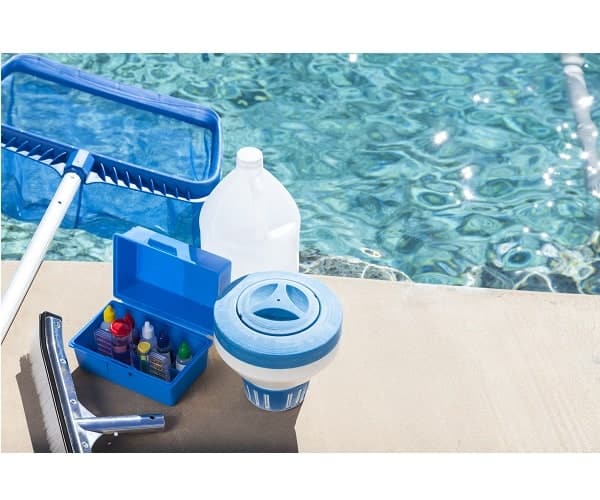
Useful guide to know how to clean the pool
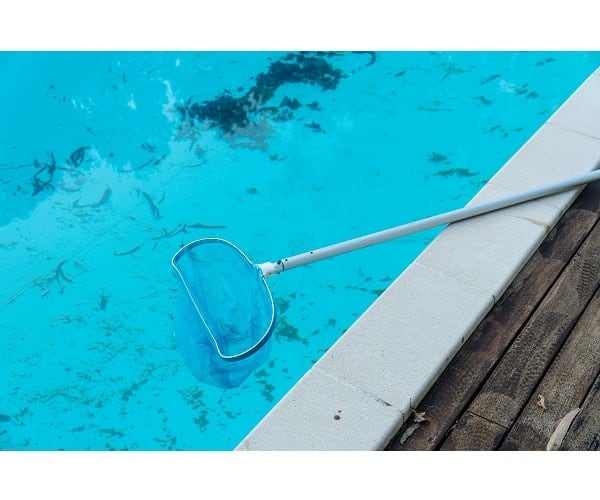
Guide to maintaining a pool with water in perfect condition
One of the most important tasks is to keep the water balanced and free of contaminants. A common way to achieve this is to use aluminum sulfate. This compound helps regulate pH levels and inhibits algae growth. Additionally, aluminum sulfate can also be used to clarify cloudy water and remove dirt and debris from the bottom of the pool. By using a little aluminum sulfate each week, you can help keep your pool in top condition all season long.
Aluminum sulfate is an important chemical for pool maintenance. By adding it to your pool, you can achieve greater water clarity and a reduced need for chlorine. Follow these tips to get the most out of aluminum sulfate and keep your pool in good condition all season long.


